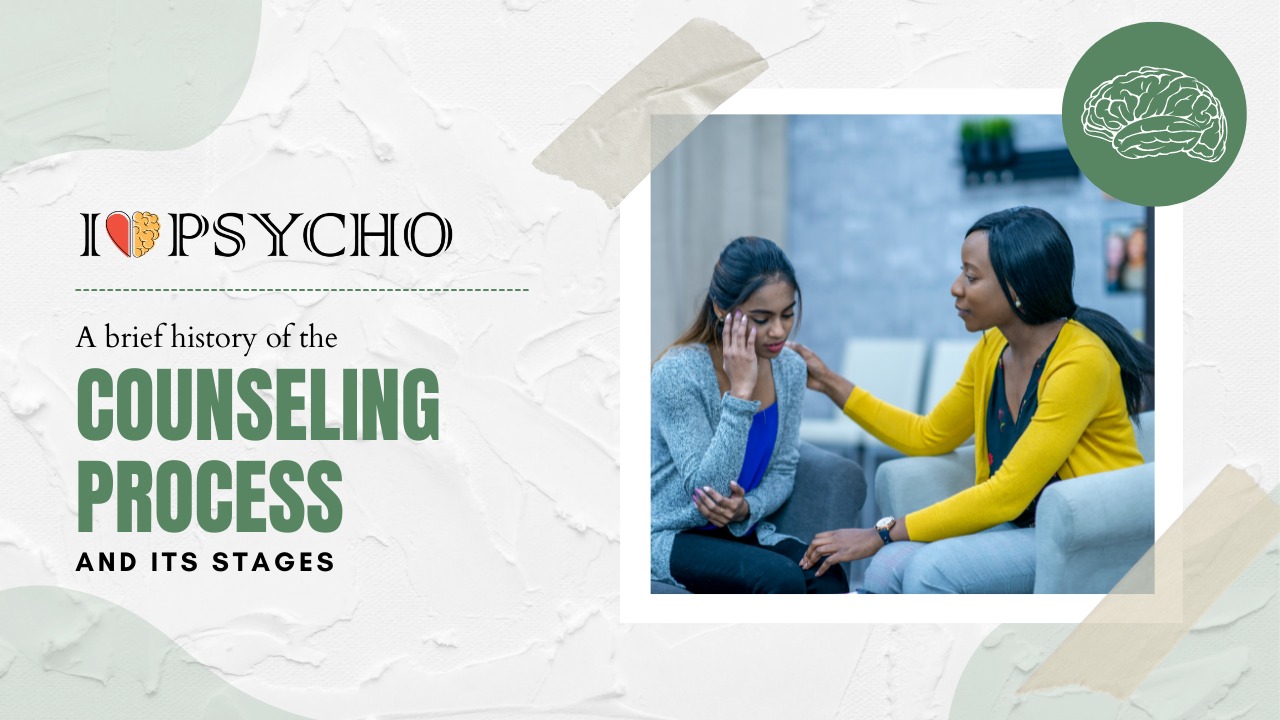The term “counselling process” refers to the events, characteristics, or conditions that occur during or as a result of the interaction between the counsellor and the client. Therapy sessions are an example of a counseling process; completing homework outside of therapy sessions is another example. Both the counsellor’s actions and the client’s own change can be referred to as “process”.
Counseling outcome, on the other hand, refers to the results or effects of counseling. Outcomes are the changes in the client that occur as a direct or indirect result of counseling. Although research has failed to demonstrate consistent links between measures of process and measures of outcomes, it is presumed that process influences outcome.
History of Counselling Process
One of the most difficult tasks in the history of counseling and psychotherapy research has been the measurement of the counseling process and outcome. One of the major issues in process and outcome measurement is that, despite the fact that hundreds of process and outcome measures have been developed, there is no agreement on which measures should be used in practice or research. This is referred to by researchers as the units of measurement problem: What should be measured with any particular client or in any particular study?
Counsellor competence, therapist adherence to a role or treatment manual, client experience of affect, therapeutic bond strength, client defensiveness or resistance, severity of client problem(s), and language use have all been investigated by process researchers. As researchers have pointed out, the term “process” can mean a variety of things.
Stages of Counselling Process
The counseling procedure is divided into three stages-
- The initial stage
- The action/problem stage
- The final stage of the process
I. The Initial Stage
- Building a Counselling Relationship
The primary purpose of counseling is to assist persons who are having personal difficulties in resolving them and improving their emotional well-being. Building an honest and trustworthy relationship with your patients lays the groundwork for how they will most effectively achieve their goals, and it is also a crucial measure of the effectiveness of your therapy.
- Active Listening
Listening effectively entails paying critical attention to what is being said. To be an effective counsellor, every counsellor must learn and practice the skill of listening. Often, simply listening is enough to relieve mental stress and provide comfort to the client. Active listening allows the counsellor to understand his or her patient in the early stages.
- Coping with Emotions
Counseling people often entails dealing with their feelings. People in counseling often experience emotional release once they begin to identify the real issues. In counselling, a significant part of the process of assisting people is concerned with the emotional or feelings side of the person.
As a result, patients are free to express their emotions while sharing information. The counsellor must gain a deep understanding of the patient’s feelings. Feelings are an expression of how they feel about a situation (an empathic reaction). During the counseling process, a wide range of sensitive emotions will be expressed, and it is the counsellor’s responsibility to help their clients feel understood and valued.
- Questioning
In the counseling process, questioning is very important. There are several methods for obtaining information from a patient, and questioning is one of the most effective methods for comprehending and assisting the patient.
II. The Action/Problem Solving Stage
Relationship building and gaining an understanding of the patient’s situation are critical tasks in the early stages. It serves as a foundation for the next phase’s work. Three major tasks make up the problem-solving process.
- Identifying and Summing up the Client’s Issue
Identifying and clearly stating the essence of the client’s communication is what summarizing entails. The first step in the problem-solving process is to identify the client’s concern and, if there are multiple concerns, to determine their priority. This serves as the foundation for the rest of the problem-solving process.
- Creating Realistic Objectives
The assisting relationship is goal-oriented and is negotiated to achieve specific objectives. Goals are classified into two types:
- Outcome goal
- Process goal
Outcome Goals: These are the goals that the patients want to achieve. It will state who the patient will be once the job is finished.
Process Goals: This refers to how the work will be done and what the methods will be for achieving the objectives.
- Creating a Plan to Meet this Objective
- Determine the steps that can be taken to achieve the goal.
- Steps to Evaluate
- Make a detailed plan
- Plan out your strategy
- Examine Your Successes
- A Plan is Formally Agreed to
In order to come up with a plan of action, you must first come up with a solution. Knowing what you want to do or change is one thing; putting those plans into action is quite another.
III. The Final Stage of the Process
- Execution of the plan
This stage of counseling is carried out by the patient, almost independently of the counsellor. At this stage, the plan that was discussed in stage one is put into action. Here, the client is usually in need of counseling support.
- The final phase’s most important tasks
- Identifying and reaffirming the patient’s progress.
- Patients’ unresolved feelings, issues, and concerns.
- Encourages the creation of new goals and the identification of logical next steps.
- Examining the work and determining the extent to which objectives were met. If the job fails, figure out why and fix the problems. If the work goes well, the patient may be encouraged to continue.
- Allowing the patient to express his or her feelings about the termination.
- Termination
The final stage of counseling is termination, which signifies the end of the relationship. The therapeutic alliance between the counsellor and the client is terminated. Because it is often the client’s last interaction with the counsellor, the termination stage can be just as important as the initial stage. If the termination is unpleasant, the client may view the time as a waste of time and resources. If the termination goes smoothly, it will have a multiplier effect, as the former client will see that their time was well spent, and another person will be helping to lessen the stigma attached to mental illness. Termination can occur for a variety of reasons, but it can be divided into two categories: “natural termination” and “premature termination.”
- Natural Termination
Counselling is meant to help people improve their lives. Yes, it has a lot of specific goals, but you can boil it down to that in the end. When a person is ready to move on, a good counsellor will recognize it. The client doesn’t have to be perfect because no one ever is.
With natural termination, there is no set time limit; it occurs when the client and the therapist reach an agreement. The counsellor can approach the issue of termination, which is known as counsellor-initiated termination. When the counsellor believes the client no longer has a good reason to stay in counseling, this is likely to be done. It should never be done on the spur of the moment, and ample time should be set aside to allow for open discussion.
The client can approach the issue of termination on their own, which is known as client-initiated termination. The client may believe they are no longer receiving value from the therapist or that the problem that brought them in has been resolved.
Client-initiated termination is when a client approaches the issue of termination on their own. The client may believe that the therapist is no longer of value to them or that the issue that brought them in has been resolved.
- Premature Termination
Before either the therapist or the client considers the therapy to be finished, the treatment is terminated. This could be due to problems in the therapeutic relationship, a misunderstanding of the required length of treatment, a change in the client’s financial situation, or the client’s or therapist’s relocation.
- Follow up
Evaluation and follow-up may be ongoing processes. It goes on from one interview to the next, as well as after the regular interviews have ended. Before terminating the session, the counsellor must determine if the patient requires any further assistance.
References-
Counselling Process. (n.d.). Psychology Research and Reference.









